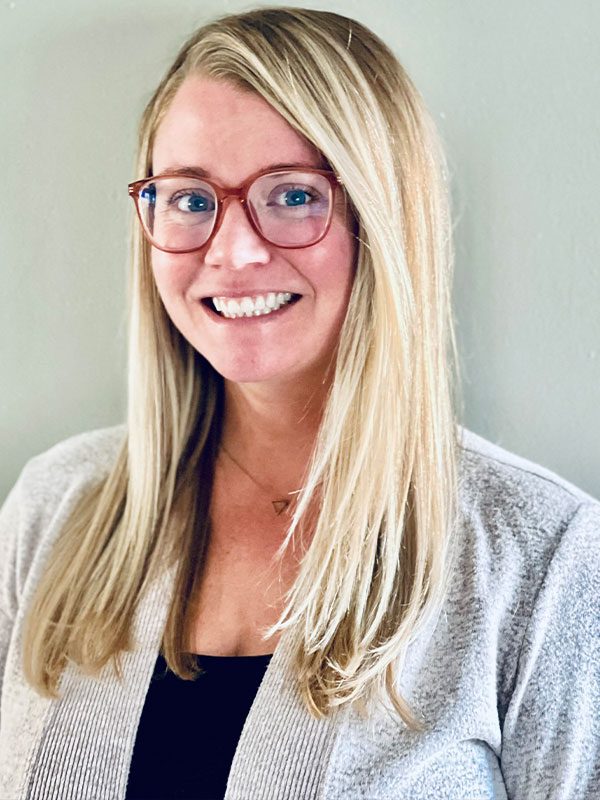If you wake up Sunday morning feeling slightly less rested than usual, if your alarm seems to be ringing a bit early and it's darker outside, there's a good reason why.
At 2 a.m. Sunday, daylight saving time starts as clocks move forward to 3 a.m. and take away an hour of sleep.
Twice a year, in the fall and spring, most people in the U.S. have to change their clocks.
In every state except Hawaii and Arizona, on the first Sunday in November, an hour is gained with the return to standard time.
And on the second Sunday in March, the opposite occurs. An hour is lost as the country marks the start of daylight saving time.
For many people, the change is simply a small issue. They adjust their clocks — or in today's world, the clocks change automatically — and continue with their lives, perhaps feeling a bit more tired than usual for a day or two.
But for others, the clock change can cause real problems. According to local experts, a portion of the population may experience a significant impact from the shift.
Having difficulty sleeping
Dr. Eduardo Espiridion, chair of the department of psychiatry at Reading Hospital, stated that most of the general public won't encounter issues adapting to daylight saving time.
However, he mentioned that there is a specific group of people who will be affected. Especially, the change can affect older individuals and those who already have sleep difficulties.
To comprehend why adjusting the clocks might have an impact, Espiridion emphasized the importance of understanding why people sleep.
Espiridion explained that there are two factors that determine why people sleep: the homeostatic sleep drive and circadian rhythms.

The homeostatic sleep drive, in simple terms, is the body's internal clock signaling a person when it's time to sleep.
When someone first wakes up, the urge to sleep is very low, Espiridion noted. However, it increases as the day progresses, leading to feelings of tiredness and a need to sleep.
Circadian rhythms are a brain function. They communicate with an endocrine gland to release melatonin, a hormone that promotes sleep.
According to Espiridion, in most people, this release typically occurs around 2 a.m.
Espiridion mentioned that altering the clocks can disrupt either the homeostatic sleep drive or circadian rhythms. He likened it to experiencing jet lag, as the brain and body try to adjust to a new set of circumstances.
"We have ways to adjust or adapt," Espiridion stated. "Some people may take as much as a week, but they get adapted.
"But there is a set of people that have trouble with it."
Espiridion pointed out that as individuals age, their ability to release melatonin diminishes. That's why older people often struggle to sleep later.
Espiridion mentioned that adjusting the clocks can worsen that situation.
The same can be true for people already dealing with sleep issues, he suggested.
"If you already have issues and we have the change to daylight saving time, you could be more susceptible to the change," he stated. "When we move forward, people with sleep issues will have less sleep. And that one hour can really cause some issues."
The impact
Not getting enough good sleep can really affect a person’s health, especially their mental health.
“In most cases, it affects thinking, the ability to focus, and your attention span will be impacted,” Espiridion explained, noting that people may have mood changes, becoming irritable and possibly even having depression or anxiety.
Julianne Lamb, a licensed clinical social worker with Thriveworks in Wyomissing, said that sleep is a quite common factor in mental health problems.
“In my work, I see that many mental health difficulties can come from not getting enough sleep or not getting good sleep,” she said.

Lamb said not having enough sleep can disrupt a person’s ability to make good decisions and solve problems as well as disrupt a person’s usual behaviors or mood. That’s because sleep helps the brain.
“We think of sleep as a time to fix our bodies, but it also fixes the mind,” she said.
In addition to mental health problems, Espiridion said not getting enough sleep can have physical effects.
For instance, people with diabetes or obesity may see it affect blood sugar levels.
“When you’re awake, you eat more,” Espiridion explained.
And, he said, not getting enough sleep can affect things like heart rate or blood pressure. The heart has less work to do during sleep.
How to deal with it
Espiridion and Lamb said there are things people can do if they struggle with sleep issues following the time change.
“It’s a great time to get into a sleep routine, if you’re not already in one,” Lamb said.
And that routine, she added, shouldn’t just consist of things like brushing your teeth and changing into pajamas. It should start earlier in the evening.
Lamb said that for many people getting into bed is the first moment they have to process their day. Their minds may race, finally having a moment to think.
“A lot of times it’s the time when the day or week catches up to them,” she said. “It’s finally quiet and they start thinking about everything that’s going on with them.”
Of course, with the mind that active it’s tough to get to sleep.
Lamb said to avoid that issue people can try to make time during the day to process things instead of saving it all up for when they crawl under the covers.
“When I work with my clients I encourage them to get their thoughts out during the day,” she said. “That can be some sort or mindfulness activity in the evening — yoga or meditation or journaling or taking a walk.
“Allowing yourself time to process what’s going on is super important.”
In order to do that, Lamb said, people should schedule it into their routines.
“Be intentional about it,” she said. “Build a schedule during the day to fit it in.”
Espiridion suggested those struggling with sleep issues dedicate themselves to a consistent sleep pattern. While he admitted that can be tough for some — including himself, who as a health care worker has a lot of experience with shift work — going to bed and waking up at the same time each night and day can be very beneficial.
In order to do that, he said, people need to practice good sleep hygiene.
He advised against drinking coffee or other caffeinated drinks in the evening, avoiding vigorous exercise at night, and trying relaxation techniques such as breathing exercises.
Espiridion also mentioned that using screens in bed is not recommended, as the light they release can disrupt melatonin production and make it hard to sleep.
He suggested not watching TV or using a cellphone in bed, and emphasized the importance of intending to sleep when in bed.
Espiridion and Lamb recommended seeking professional help for sleep issues and adjusting to daylight saving time.
Espiridion advised seeking help from a primary care physician if struggling to sleep for more than a month, as he considered more than a week of struggle to be too long.









